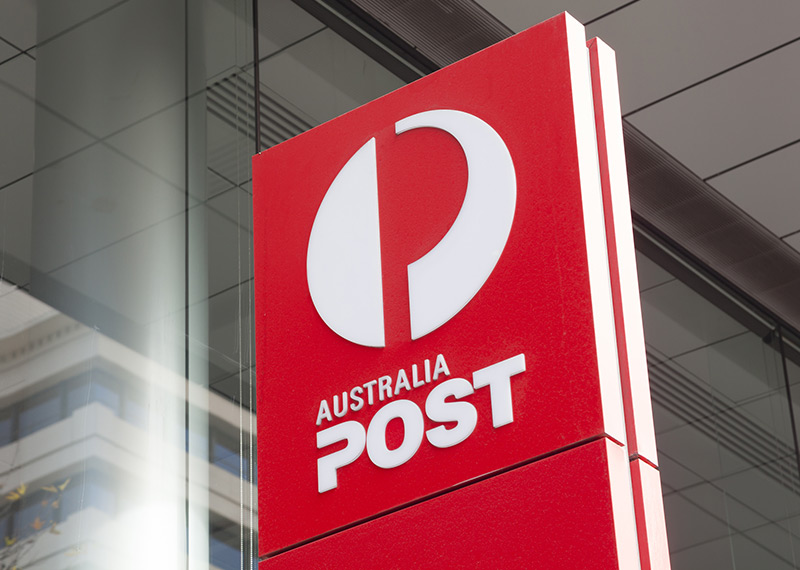Browse our range of reports and publications including performance and financial statement audit reports, assurance review reports, information reports and annual reports.
The objective of this audit was to examine whether the selected entities within the Attorney-General’s portfolio have implemented all agreed recommendations from parliamentary committee and Auditor-General reports within the scoped timeframe.
Please direct enquiries through our contact page.
The Auditor-General received correspondence from Senator the Hon Don Farrell dated 7 November 2022, requesting that the Auditor-General conduct an investigation to examine the Parliamentary Expenses Management System project.
The Auditor-General met with Senator the Hon Don Farrell on 24 November 2022 to discuss the concerns raised in the request for audit. The request is being considered in the development of the ANAO 2022–23 Annual Audit Work Program.
The Auditor-General provided a follow-up response to Senator the Hon Don Farrell on 14 April 2023.
Please direct enquiries relating to requests for audit through our contact page.
The objective of the audit was to assess whether the Department of Education and Training established the Apprenticeship Training – alternative delivery pilots program in accordance with the Commonwealth Grants and Rules Guidelines.
Please direct enquiries relating to reports through our contact page.
The objective of this audit was to examine whether the Department of Infrastructure, Transport, Regional Development and Communications exercised appropriate due diligence in its acquisition of the ‘Leppington Triangle’ land for the future development of the Western Sydney Airport.
Please direct enquiries through our contact page.
The objective of this audit was to examine the effectiveness of selected non-corporate Commonwealth entities' arrangements for managing cyber security risks within their procurements and specific contracted providers under the Protective Security Policy Framework (PSPF).
Please direct enquiries through our contact page.
The objective of this audit is to assess the effectiveness of the Department of Climate Change, Energy, the Environment and Water's (DCCEEW) corporate plan as its primary planning document in accordance with the Public Governance, Performance and Accountability Act 2013.
Please direct enquiries through our contact page.
The objective of this audit was to assess the effectiveness of the selected entities’ implementation of arrangements for managing cyber security incidents in accordance with the Protective Security Policy Framework (PSPF) and relevant ASD Cyber Security Guidelines.
Please direct enquiries through our contact page.
The objective of the audit was to assess the effectiveness of the Department of Infrastructure, Transport, Regional Development and Communications’ design and implementation of measures to support the aviation sector in response to the COVID-19 pandemic.
Please direct enquiries through our contact page.
The objective of the audit was to assess whether the Department of Infrastructure, Regional Development and Cities had designed and implemented appropriate governance and administration arrangements for the transition and delivery of sustainable reforms to services on Norfolk Island.
Please direct enquiries through our contact page.
The audit objective was to determine whether selected grant programs are being administered efficiently by the Australia Council in relation to suitable comparators. The selected grant programs are collectively known as the Australia Council Grants Program.
Please direct enquiries relating to reports through our contact page.
The audit reviewed the operation of the payment of accounts function in 8 Commonwealth organisations against their internal control framework. The main objectives of the audit were to determine whether organisations had implemented appropriate risk management strategies for the processing of accounts and whether payment for goods ans services had been properly authorised. The audit also reviewed progress since the payment of accounts audit undertaken in 1996 ( Audit Report No. 16, 1996-97, Financial Control and Administration Audit, Payment of Accounts).
The Auditor-General responded on 5 May 2021 to correspondence from Senator Gerard Rennick dated 22 March 2021, requesting that the Auditor-General put in place the practice of annually auditing Australia's gold reserves.
Please direct enquiries relating to requests through our contact page.
This audit would assess the effectiveness of Defence’s management of the disposal of specialist military equipment.
At 30 June 2024, Defence reported that it manages $145.9 billion of total assets, including $88.6 billion of specialist military equipment. When one of these items is no longer suitable for or is surplus to Defence’s requirements, Defence disposes of it by either: transferring it to an Australian Government agency or another government, selling it, gifting it or destroying it. An audit would examine whether the disposal of selected equipment was conducted in accordance with Defence policy and applicable Commonwealth legislative requirements.
Please direct enquiries through our contact page.
This audit would assess whether entities’ procurement activities have been conducted in accordance with the Commonwealth Procurement Rules as applicable.
The National Intelligence Community (NIC) was officially formed in 2017 and comprises agencies from the Home Affairs, Defence, Foreign Affairs and Prime Minister and Cabinet portfolios. This audit would examine whether the procurement activities of selected NIC entities have demonstrated value for money and were appropriately managed. It would include procurements used to develop capabilities of individual NIC agencies, as well as those that are for a shared capability across the sector.
Please direct enquiries through our contact page.
The objective of this audit is to assess whether the Department of Infrastructure, Transport, Regional Development, Communications and the Arts effectively managed the approval and administration of the Australian Government’s $2.2 billion funding commitment towards Suburban Rail Loop East.
Please direct enquiries through our contact page.
The objective of the audit was to assess whether the award of funding under the Regional Jobs and Investment Packages program was informed by appropriate departmental advice and that processes complied with the grants administration framework.
Please direct enquiries through our contact page.
The objective of this audit was to assess the effectiveness of the governance of the Tiwi Land Council under the Aboriginal Land Rights (Northern Territory) Act 1976 and the Public Governance, Performance and Accountability Act 2013.
Please direct enquiries through our contact page.
The objective of this audit was to assess whether appropriate steps were taken to protect the Commonwealth's interests and obtain value for money in respect to the $3.5 billion in Commonwealth funding committed to the NSW Government for the WestConnex project.
Please direct enquiries relating to reports through our contact page.
The audit objective was to assess whether selected entities effectively implemented agreed recommendations from Auditor-General Report No. 25 2019–20 Aboriginal and Torres Strait Islander Participation Targets in Major Procurements.
Please direct enquiries through our contact page.
The audit objective was to assess the effectiveness of risk management, data monitoring and public reporting arrangements associated with the Australian Government's funding of public hospital services under the 2011 National Health Reform Agreement (NHRA).
Please direct enquiries through our contact page.
The objective of this audit is to assess the effectiveness of the governance of the Anindilyakwa Land Council under the Aboriginal Land Rights (Northern Territory) Act 1976 and the Public Governance, Performance and Accountability Act 2013.
Please direct enquiries through our contact page.
The objective of the audit was to assess the effectiveness of the transition of the Remote Jobs and Communities Programme to the Community Development Programme, including whether the Community Development Programme is well designed and administered effectively and efficiently.
Please direct enquiries relating to reports through our contact page.
The objective of the audit was to assess whether the contractual arrangements that have been put in place for the delivery of the Moorebank Intermodal Terminal (MIT) will provide value for money and achieve the Australian Government’s policy objectives for the project.
Please direct enquiries relating to reports through our contact page.
The audit objective was to assess the effectiveness of the Department of the Environment’s and the Australian Customs and Border Protection Service’s management of compliance with the wildlife trade regulations under Part 13A of the Environment Protection and Biodiversity Conservation Act 1999.
Please direct enquiries relating to reports through our contact page.
The objective of the audit was to assess the effectiveness of the Department of Foreign Affairs and Trade’s overseas crisis management and response arrangements in meeting the government’s objectives for returning Australians from overseas in response to the COVID-19 global pandemic.
Please direct enquiries through our contact page.
The objective of this audit was to examine whether the Australian Postal Corporation (Australia Post) is meetings its Community Service and International obligations efficiently and the effectiveness of Commonwealth shareholders in monitoring value for money.
Please direct enquiries relating to reports through our contact page.
The Auditor-General responded on 2 August 2021 to correspondence from the Hon Catherine King MP and Mr Andrew Giles MP dated 7 July 2021, requesting an audit into the entirety of the Morrison Government's $4.8 billion Urban Congestion Fund.
Please direct enquiries through our contact page.
The objective of the audit was to assess the effectiveness of Medicare electronic claiming arrangements, including an assessment of the extent to which claiming and processing efficiencies for the Government, health professionals and Medicare customers have been achieved.
Please direct enquiries relating to reports through our contact page.
The objective of this audit was to assess the effectiveness of controls being implemented and/or developed by the National Disability Insurance Agency (NDIA) to ensure National Disability Insurance Scheme (NDIS) access decisions are consistent with legislative and other requirements.
Please direct enquiries relating to reports through our contact page.
The objective of the audit was to assess whether the Office of the Registrar of Indigenous Corporations (ORIC) supports good governance in Indigenous corporations consistent with the Corporations (Aboriginal and Torres Strait Islander) Act 2006 (CATSI).
Please direct enquiries relating to reports through our contact page.
The objective of the audit was to assess the performance of the Child Support Agency in the administration of key aspects of the Child Support Scheme. The ANAO previously audited the CSA in 1993-94 and identified scope for improvement in the management and administration of the Child Support Scheme. Particular areas of audit concern included client service, staff training and debt management. The current audit has reviewed the CSA's progress in improving Agency performance since that time. The audit focused initially on the areas identified in the previous audit, but also sought to identify further opportunities for improvement where appropriate.
The objective of the audit was to examine whether strategic water procurements by the Department of Agriculture, Water and the Environment were conducted consistent with government policy, were supported by appropriate program design, were planned and executed appropriately, and achieved value for money.
Please direct enquiries through our contact page.
The audit examined whether COVID-19 procurements to increase the National Medical Stockpile (NMS) were consistent with the proper use and management of public resources and whether COVID-19 deployments of the NMS were effective.
Please direct enquiries through our contact page.
The objective of this audit was to examine the extent to which Australian Government entities have implemented the Digital Continuity 2020 policy, and how effectively the National Archives of Australia is monitoring, assisting, and encouraging entities to meet the specified targets of the policy.
Please direct enquiries through our contact page.
The audit objective was to assess whether the Department of Defence's (Defence's) arrangements for the operation and maintenance of the Mulwala and Benalla facilities beyond June 2020 were established through appropriate processes and in accordance with the Commonwealth Procurement Rules (CPRs).
Please direct enquiries through our contact page.
The objective of the audit was to assess the effectiveness of cyber security risk mitigation strategies implemented by selected non-corporate Commonwealth entities to meet mandatory requirements under the Protective Security Policy Framework, and the support provided by the responsible cyber policy and operational entities.
Please direct enquiries through our contact page.
The Auditor-General responded on 6 April 2023 to correspondence from Senator Andrew Bragg dated 8 March 2023, requesting that the Auditor-General conduct an investigation into the costs of the ongoing legal dispute concerning the Commonwealth and Dr Monique Ryan MP. The Auditor-General responded on 11 May 2023 to follow-up correspondence from Senator Bragg dated 18 April 2023, requesting a timeline for finalisation of the 2022–23 financial statements audit of the Department of Finance.
The Auditor-General responded on 15 December 2023 regarding the ANAO enquiries and that the results are published in the Auditor-General Report No.9 (2023-24) Audits of the Financial Statements of Australian Government Entities ended 30 June 2023 that tabled in the Parliament on 14 December 2023.
Please direct enquiries relating to requests for audit through our contact page.
The objective of this audit was to assess the effectiveness of the Department of Social Services’ role in implementing the National Plan to Reduce Violence Against Women and their Children 2010–2022 (the National Plan).
Please direct enquiries through our contact page.
The Auditor-General responded on 16 January 2024 to correspondence from Senator the Hon. Bridget McKenzie dated 22 December 2023, requesting that the Auditor-General to conduct an audit into the Australian Government's $2.2 billion commitment to the Melbourne Suburban Rail Loop Project.
Please direct enquiries through our contact page.
This is a follow-up audit to Audit Report No. 16, 1995-1996, Assessable Government Industry Assistance. This audit examined whether the Australian Taxation Office (ATO) had implemented the appropriate balance of compliance strategies to ensure that Australian Government Industry Assistance (AGIA) is adequately identified, disclosed to the ATO, and the revenue collected in an efficient and administratively effective manner. The objective of this audit was to report on the action taken by the Australian Taxation Office in addressing the recommendations of the 1996 Audit Report.
The audit objective was to assess the effectiveness of the establishment, implementation and operation of the Early Years Quality Fund against the requirements of the Early Years Quality Fund Special Account Act 2013 and the Commonwealth grants administration framework.
Please direct enquiries relating to reports through our contact page.
The Auditor-General responded on 4 February 2021 to correspondence from Senator Sarah Hanson-Young dated 14 January 2021, requesting that the Auditor-General conduct an audit of the approval of the Yeelirrie uranium mine by the Federal Government in 2019.
Please direct enquiries relating to requests through our contact page.
The objective of the audit was to assess the adequacy of selected Australian Government entities’ practices and procedures to manage business continuity. To conclude against this objective, the ANAO adopted high-level criteria relating to the entities’ establishment, implementation and review of business continuity arrangements.
Please direct enquiries relating to reports through our contact page.
The Auditor-General has responded to a request from Mr Pat Conroy MP dated 28 September 2018, asking that the Auditor-General conduct an audit of aspects of the Government advertising campaign: Powering Forward.
Please direct enquiries through our contact page.
The objective of this audit was to examine the effectiveness of the Australian Electoral Commission’s management of financial disclosures required under Part XX of the Commonwealth Electoral Act 1918, including the extent to which the AEC is achieving accurate and complete financial disclosures.
Please direct enquiries through our contact page.
The objective of this audit was to assess the effectiveness of the governance of the Northern Land Council under the Aboriginal Land Rights (Northern Territory) Act 1976, Native Title Act 1993 and Public Governance, Performance and Accountability Act 2013.
Please direct enquiries through our contact page.
The audit objective was to assess whether the Attorney-General’s Department’s conduct of the procurements relating to two of the new child sexual abuse-related national services employed open and effective competition and achieved value for money, consistent with the Commonwealth Procurement Rules (CPRs).
Please direct enquiries through our contact page.
The primary objective of this audit was to review the management and administration of travel undertaken by public sector employees to determine whether, and to what extent, it complied with approved policies and procedures. The other objective of this audit, as with all across-the-board FCA audits, is to identify, develop and report better practices. The audit dealt with short-term travel by Commonwealth public sector employees on official business.
The Acting Auditor-General responded on 23 February 2023 to correspondence from Hon Mark Dreyfus KC, MP dated 3 February 2023, requesting that the Auditor-General undertake a performance audit of the Expensive Commonwealth Criminal Cases Fund.
Please direct enquiries relating to requests for audit through our contact page.
The Auditor-General responded on 12 August 2020 to correspondence from Senator Rachel Siewert dated 9 July 2020, requesting that the Auditor-General examine the National COVID-19 Coordination Commission as part of the audit program of the Government’s COVID-19 response.
Please direct enquiries relating to requests through our contact page.
The objective of the audit was to examine the effectiveness of the Department of Social Services' administration of the Cashless Debit Card program, including implementation of the recommendations made in Auditor-General Report No.1 2018–19, The Implementation and Performance of the Cashless Debit Card Trial.
Please direct enquiries through our contact page.
The objective of the audit was to assess the department’s: effectiveness in administering school funding; and implementation of recommendations made in Auditor-General Report No.18 2017–18 Monitoring the Impact of Australian Government School Funding and JCPAA Report 476: Australian Government Funding.
Please direct enquiries through our contact page.
This audit would examine whether the Department of Defence is managing fatigue-related risks in the Australian Defence Force (ADF) effectively.
The Defence Safety Manual provides Defence’s corporate policy framework to support compliance with its legislative obligations under the Work Health and Safety Act 2011 (WHS Act) and Work Health and Safety Regulations 2011. The manual includes a fatigue management policy which applies to all Defence workers, and is supplemented by specific fatigue management guidance developed individually by Army, Navy and Air Force. An audit would provide independent assurance to the Parliament that Defence is appropriately managing fatigue-related risks in accordance with its legislative obligations.
Please direct enquiries through our contact page.
The Auditor-General responded on 23 April 2020 to correspondence from Senator Katy Gallagher dated 31 March 2020, requesting that the Auditor-General develop an audit program related to the Australian Government’s economic response to COVID-19.
Please direct enquiries relating to requests for audit through our contact page.
The objective of the audit was to assess the effectiveness of the Australian Pesticides and Veterinary Medicines Authority’s (APVMA’s) implementation of reforms to agvet regulation and the extent to which the authority has achieved operational efficiencies and reduced the cost burden on regulated entities.
Please direct enquiries relating to reports through our contact page.
The objective of the audit was to assess the effectiveness of Australian Government-funded aged care services delivered to Aboriginal and Torres Strait Islander people.
Please note: Aboriginal and Torres Strait Islander people should be aware that this website may contain images of deceased people.
Please direct enquiries relating to reports through our contact page.
The audit objective was to examine the effectiveness of the Great Barrier Reef Marine Park Authority’s regulation of permits and approvals, including its implementation of recommendations from Auditor-General Report No.3 of 2015–16 Regulation of Great Barrier Reef Marine Park Permits and Approvals.
Please direct enquiries through our contact page.
The audit was conducted as a joint financial statement and performance audit of HIC's IT systems. The objective of the financial statement component of the audit was to express an opinion on whether HIC could rely on its IT systems to support production of a reliable set of balances for the financial statements. The objective of the performance audit component was to determine whether HIC's IT systems' outputs met quality and service delivery targets.
This audit would assess the effectiveness of the Department of Agriculture, Fisheries and Forestry’s administration of post entry quarantine.
Imported plants and animals, including cats, dogs, birds and horses, complete quarantine at the department’s Post Entry Quarantine facility in Mickleham, Victoria.
Please direct enquiries through our contact page.
The objective of the audit was to assess the effectiveness of the governance of the Northern Land Council under the Aboriginal Land Rights (Northern Territory) Act 1976, the Native Title Act 1993 and the Public Governance, Performance and Accountability Act 2013.
Please direct enquiries through our contact page.
The objective of the audit was to continue to examine the progress of the implementation of the annual performance statements requirements under the Public Governance, Performance and Accountability Act 2013 (PGPA Act) and the Public Governance, Performance and Accountability Rule 2014 (PGPA Rule) by selected entities.
Please direct enquiries through our contact page.
The audit was conducted as a joint financial statement and performance audit of DVA's Information Technology (IT) systems. The objective of the financial statement component of the audit was to express an opinion on whether DVA could rely on its IT systems to support production of a reliable set of financial information for the financial statements. The objective of the performance audit component was to determine whether DVA's IT systems outputs adequately met quality and service delivery targets.
This audit would examine the effectiveness of Defence’s procurement and implementation of the Defence Enterprise Resource Planning (ERP) Program to date.
The ERP Program is a Defence-wide priority and a key part of the Defence transformation agenda. The most recent release in May 2025 — ERP Tranche 1B Main release — was Defence’s fifth and largest ERP capability release to date, and was to deliver the finance, procurement, supply chain management, transport management, land maintenance and engineering components of the ERP system. Defence intended for this release to significantly expand the number of users accessing ERP in the course of their day-to-day activities within Defence.
This audit would examine whether the ERP system delivered is consistent with the capability and specifications approved by government.
Please direct enquiries through our contact page.
This audit would assess whether the arrangements under the Federation Funding Agreement (FFA) framework are effective in supporting payment and program objectives. On 28 August 2020, the Council on Federal Financial Relations (CFFR) implemented new governance arrangements for Commonwealth-state funding agreements, known as the Federation Funding Agreements (FFA) Framework. The sectoral FFAs covering Health, Education and Skills, Infrastructure, Environment, and Affordable Housing, Community Services and Other, consolidated all existing National Partnership Agreements, Streamlined Agreements and Project Agreements as schedules.
This audit would examine FFA Framework arrangements, through sample arrangements or through specific programs, for example the Housing Support Program.
Please direct enquiries through our contact page.
The Auditor-General responded on 12 July 2019 to correspondence from Senator Mehreen Faruqi dated 3 July 2019, requesting that the Auditor-General conduct an investigation to examine the Live Exports Branch of the Department of Agriculture. The request for audit related to allegations of mismanagement and falsification of official records.
Please direct enquiries relating to requests through our contact page.
The ANAO 2017–18 Corporate Plan is the ANAO's key strategic planning document. It guides our operating environment and sets out how we will deliver on our purpose. The corporate plan is complemented by the annual audit work program which reflects the ANAO's strategy and deliverables for the coming year.
Please direct enquiries about our corporate plan through our contact page.
The Auditor-General responded on 1 July 2021 to correspondence from the Hon Brendan O'Connor MP and Mr Tim Watts MP dated 5 June 2021, requesting that the Auditor-General consider initiating a performance audit into the use of provisional ICT accreditation within Defence.
Please direct enquiries relating to requests through our contact page.
The audit sought to assess the efficiency and effectiveness of the ADF's management of fuel and lubricants and to identify possible areas for improvement. The audit focused on major aspects of the fuel supply chain, in particular the strategic management of fuel (eg. the coordination of fuel requirements and stockholding policy). The audit also reviewed fuel procurement practices, storage and handling issues. The audit coverage addressed the fuel supply aspects of these matters rather than transport, distribution and equipment issues. Although directed principally towards operational fuels, the audit took into consideration issues associated with ADF's requirement for oils and lubricants.
The objective of this audit was to examine the effectiveness of the design and implementation of the Department of the Prime Minister and Cabinet’s (PM&C’s) evaluation framework for the Indigenous Advancement Strategy (IAS), in achieving its purpose to ensure that evaluation is high quality, ethical, inclusive and focused on improving outcomes for Indigenous Australians.
Please direct enquiries through our contact page.
The audit was conducted as a joint financial statement and performance audit of Centrelink's Information and Technology (I&T) systems. The objective of the financial statement component of the audit was to express an opinion on whether Centrelink could rely on its I&T systems to support production of a reliable set of financial information for the financial statements. The objective of the performance audit component was to determine whether Centrelink's I&T systems outputs adequately met quality and service delivery targets.
The audit will examine the effectiveness of the Workplace Gender Equality Agency’s (WGEA’s) management of compliance with the Workplace Gender Equality Act 2012 (the Act).
The Act requires non-public sector employers with 100 or more employees to submit an annual report containing data on workplace gender equality to the WGEA. Employers with 500 or more employees must also comply with minimum standards for gender equality. Employers that fail to comply with the Act may be publicly named by the WGEA and may be excluded from tendering for Australian Government contracts, receiving Australian Government grants, or tendering for contracts with some state governments. On 30 March 2023, the Workplace Gender Equality Amendment (Closing the Gender Pay Gap) Bill 2023 was passed, which requires the WGEA to publish employer gender pay gaps for private sector and Commonwealth public sector employers, and from 2024, employees will have access to information about their employer’s performance on pay parity.
The audit may examine the WGEA’s use and assurance of data, identification and monitoring of non-compliant employers, and certification of compliance. The audit may also examine whether non-compliant employers have been awarded Australian Government contracts and grants.
Please direct enquiries through our contact page.
This audit would assess the effectiveness of the Department of Defence’s management of the Defence estate.
Defence is projected to spend at least $12.2 billion over the forward estimates on sustaining its estate. The Defence estate consists of around 700 owned and leased properties, comprising 25,000 buildings and 6,000 other structural assets, including critical infrastructure and facilities such as military bases, wharves, ports, airbases, training ranges, fuel and explosive ordnance infrastructure. A number of strategic reviews conducted over the last 10 to 15 years have made recommendations relevant to Defence’s estate and infrastructure. This audit would examine Defence’s implementation of those recommendations, including those arising from the 2023 Defence Strategic Review.
Please direct enquiries through our contact page.
The objective of the audit was to assess the effectiveness of the governance of the Northern Land Council in fulfilling its responsibilities and obligations under the Aboriginal Land Rights (Northern Territory) Act 1976, Native Title Act 1993 and Public Governance, Performance and Accountability Act 2013.
Please direct enquiries relating to reports through our contact page.
The audit objective was to assess whether the Department of the Prime Minister and Cabinet has effectively established and implemented the Indigenous Advancement Strategy to achieve the outcomes desired by government.
Please note: Aboriginal and Torres Strait Islander people should be aware that this website may contain images of deceased people.
Please direct enquiries relating to reports through our contact page.
This audit considered the action taken in relation to the recommendations of Audit Report No.47, 1991-92, Energy Management of Commonwealth Buildings. The objective of this follow-up audit was to assess whether the Department of Primary Industries and Energy, the Department of Administrative Services, and the Department of Finance had taken appropriate action in relation to the recommendations. The audit criteria were the extent to which the original recommendations agreed by the agencies had been implemented and what had been achieved.
The Auditor-General responded on 2 December 2016 to correspondence from Senator the Hon Stephen Parry, President of the Senate, on 14 October 2016, regarding a resolution agreed by the Senate requesting that the Auditor-General conduct a performance audit assessing the procurement of services related to the National Cancer Screening Register.
Please direct enquiries relating to requests for audit through our contact page.
The objective of this report was to provide the Auditor‐General’s independent assurance over the status of the selected Major Projects, as reflected in the Statement by the Secretary of Defence, and the Project Data Summary Sheets (PDSSs) prepared by Defence, in accordance with the Guidelines endorsed by the Joint Committee of Public Accounts and Audit.
The objective of this audit was to assess whether selected regulatory entities effectively apply the cost recovery principles of the Australian Government’s cost recovery framework. The selected regulatory entities were the Department of Agriculture and Water Resources, the Australian Maritime Safety Authority, and the Department of Health (Therapeutic Goods Administration).
Please direct enquiries through our contact page.
The objective of this audit was to assess whether the Commonwealth Scientific and Industrial Research Organisation (CSIRO) designed and is implementing its property investment strategy in a way that is delivering the intended benefits, and how any lessons learned are being reflected in a new strategy that is being developed.
Please direct enquiries through our contact page.
This audit would examine the effectiveness of the Australian Taxation Office’s (ATO) regulation of Self-Managed Superannuation Funds (SMSFs), and include a follow-up audit on employer compliance with Superannuation Guarantee requirements.
Australians generally rely on superannuation as their main asset (other than the family home) to save for their retirement. The ATO’s role in the superannuation system includes regulating and supporting Self-Managed Superannuation Funds to comply with superannuation and taxation laws to safeguard retirement incomes, and to support employers to meet their superannuation obligations.
The ATO corporate plan 2024–25 identifies the maintenance of high levels of compliance across the superannuation system and avoiding any deterioration in performance as a core priority. The ANAO last examined the ATO’s approach to managing SMSFs in 2007, and addressing Superannuation Guarantee non-compliance in 2022.
Please direct enquiries through our contact page.
This is a follow-up audit to Audit Report No.7, 1993-94 titled Department of Social Security: Data-matching. It reports upon the effectiveness of the DSS actions in response to the recommendations of the original 1993-94 audit. In noting the considerable progress made by the Department against the original audit recommendations, the ANAO considers that several recommendations have yet to be fully addressed. These are covered in this report and include reducing the variability in review results across offices, enhancing the TFN registration process, and validating savings assumptions.
The Auditor-General responded on 18 May 2018 to correspondence from Senator Whish-Wilson dated 24 April 2018, requesting that the Auditor-General conduct an audit of the implementation of declaration of interest and conflict of interest policies by the Australian Securities and Investments Commission (ASIC).
Please direct enquiries through our contact page.
The objective of the audit was to examine how efficiently and effectively the Australian Customs Service administers the Passenger Movement Charge, including the interim arrangements with airlines. The audit was intended to provide guidance to ACS on key issues and areas of risk it should address in developing the system supporting the collection of PMC. Audit criteria were determined to consider how well revenue was protected and how well the administrative arrangements were operating. The audit sought to identify areas for improvement in the formulation of longer-term arrangements.
The objective of this report is to provide the Auditor‐General’s independent assurance over the status of the selected Major Projects. The status of the selected Major Projects is reported in the Statement by the Secretary of Defence and the Project Data Summary Sheets (PDSSs) prepared by Defence, in accordance with the Guidelines endorsed by the Joint Committee of Public Accounts and Audit (JCPAA).
Please direct enquiries relating to reports through our contact page.
The audit reviewed the High Wealth Individuals Taskforce, a comprehensive compliance program with the Australian Taxation Office. The objective of the audit was to examine and report on the management and operations of the taskforce. In doing so, the audit reviewed the Australian Taxation Office's own evaluation of the taskforce and assessed whether, and to what extent, the taskforce delivered the outcomes specified by the Government.
The major projects report (MPR) is an annual review of the Department of Defence’s major defence equipment acquisitions, undertaken at the request of the Parliament’s Joint Committee of Public Accounts and Audit (JCPAA).
The purpose of the MPR is to provide information and assurance to the Parliament on the performance of selected acquisitions as at 30 June 2021. This is the 14th MPR since its commencement in 2007–08.
Please direct enquiries through our contact page.
The audit objectives were to examine the effectiveness of Defence’s management of the test and evaluation (T&E) aspects of its major capital equipment acquisition program; and to report on Defence’s progress in implementing T&E recommendations made in the Senate Foreign Affairs, Defence and Trade References Committee’s August 2012 report, Procurement procedures for Defence capital projects.
Please direct enquiries relating to reports through our contact page.
The Auditor-General responded on 17 May 2021 to correspondence from Senator Sarah Hanson-Young dated 21 April 2021, requesting that the Auditor-General conduct an audit of the $40 million given to Fox Sports for the purpose of broadcasting women’s sport.
Please direct enquiries relating to requests for audit through our contact page.
The objective of the audit was to assess whether the Department of Immigration and Border Protection (DIBP) had appropriately managed the procurement of garrison support and welfare services at offshore processing centres in Nauru and Papua New Guinea (Manus Island); and whether the processes adopted met the requirements of the Commonwealth Procurement Rules (CPRs) including consideration and achievement of value for money.
Please direct enquiries relating to reports through our contact page.
The objective of the audit was to report to Parliament on the economy, efficiency and administrative effectiveness of the risk management process in the Small Business Income business line. It follows Audit Report No.37 1996-97 and entitled Risk Management - Australian Taxation Office. That audit focused on broad strategic issues relevant to risk management in the Australian Taxation Office (ATO) as a whole. This audit follows the issues identified in that report into the day-to-day management of the Small Business Income as an example of how risk management operates in a significant element of the ATO.
The overall objective of the audit was to determine whether Health's management and operation of selected IT systems:
- met industry better practice;
- met quality and service delivery parameters set by Health and, if applicable, by the Government; and
- operate effectively, efficiently and economically.
The audit applied selected processes from CobiT (Control Objectives for Information and Related Technology) to assist with the assessment of key aspects of Health's management and operation of IT. The audit builds on ANAO's earlier IT audits using CobiT.
The audit was undertaken in the Training and Youth Division TYD) of the Department of Education, Training and Youth Affairs. The objective of the audit was to determine whether the application of Business Processing Reengineering(BPR) principles would identify improvements to the business processes of the TYD. The TYD was used in this audit to illustrate the application of BPR as a tool for agencies to identify efficiencies and enhance program effectiveness.
The objectives of the audit were to:
- assess the effectiveness of the ongoing administration of the Australian Government’s campaign advertising framework; and
- assess the effectiveness of the selected entities’ administration in developing advertising campaigns and implementing key processes against the requirements of the campaign advertising framework applying at the time, and relevant legal and government policy requirements.
Please direct enquiries relating to reports through our contact page.
The objective of the ANAO audit was to identify possible areas for improvement in the Australian Defence Force's management of its Reserve forces. The audit focused on major aspects of the Reserves including roles and tasks, force structure, capability, training, individual readiness, equipment, facilities, recruitment, retention, conditions of service and administration. The audit covered the Australian Naval Reserve, the Australian Army Reserve and the Royal Australian Air Force Reserve. However, due to its size and cost, the Army Reserve was a major focus of the audit activity.
The audit was undertaken following advice from the Joint Committee of Public Accounts and Audit (JCPAA) to the Auditor-General that assurance that ABC programming adequately reflects the ABC's Charter was an audit priority of Parliament. The objective of the audit is to provide Parliament with this assurance. The focus of the audit was on the governance arrangements of the ABC Board and management that enable the ABC to demonstrate the extent to which it is achieving its' Charter obligations, and other related statutory requirements, efficiently and effectively. The scope of the audit was as follows:
- Review the ABC's corporate governance framework against better practice models. The ANAO had regard to the ABC's unique role as a national public broadcaster established as a budget funded Commonwealth statutory authority subject to the Commonwealth Authorities and Companies Act 1997.
- Examine the ABC Board's approach to the interpretation of the Charter requirements of the ABC and the setting of strategic directions, and management's administrative arrangements for implementing the strategic directions established by the Board.
- Examine the ABC's performance information framework, the development, documentation and use of performance measures in relation to targets and/or objectives, the monitoring and reporting of performance and its' inter-relationship with the corporate planning and budgetary processes, particularly in relation to the strategic directions set by the Board.
The audit did not examine the overall management of the ABC. In keeping with the audit scope, the audit examined ways in which the ABC aligns its' strategic directions with its' Charter requirements for programs broadcast on radio, television and on-line and assures itself, and Parliament, about the achievement of its' Charter obligations. Further, the audit did not examine the operations of ABC Enterprises or symphony orchestras that operate as ABC-owned subsidiary companies.
The audit objective was to determine whether organisations had implemented adequate control frameworks and processes to mitigate the risks associated with GST obligations and transactions. The scope of the audit covered all aspects of GST processing relating to the revenue and expenditure accounting cycles in six Commonwealth organisations. Audit testing of transactions was based on a statistical sample of 160 GST transactions at each of the organisations.
The objective of this report is to provide the Auditor-General’s independent assurance over the status of the selected Major Projects, as reflected in the Statement by the Secretary of Defence, and the Project Data Summary Sheets (PDSSs) prepared by Defence, in accordance with the Guidelines endorsed by the Joint Committee of Public Accounts and Audit.
The purpose of the audit was to examine the environmental management mechanisms in place across some of the major Commonwealth land management and oversighting entities. In particular, the audit examined Commonwealth environmental management practices to identify current strengths and weaknesses, and provide a framework and direction for the adoption of better practice and continuous improvement. The audit has not been designed to judge past Commonwealth performance using current environmental standards and practices. Rather, the audit focused on encouraging the development of better practice by illustrating the implications and lessons learned from past and present practices.
On 23 February 2016 the ANAO held its first CFO Forum - The Results of the 2014-15 Financial Statement audits. The Forum presented an opportunity to provide an overview of the end of year report tabled in Parliament in December 2015, the issues which arose during 2014-15, and the focus areas for the ANAO’s reporting to Parliament in 2015-16.
Please direct enquiries relating to our chief financial officer forum through our contact page.
The objective of this audit was to examine the efficiency of the Australian Transport Safety Bureau’s (ATSB’s) investigation of transport accidents and safety occurrences.
Please direct enquiries through our contact page.
This audit would assess the effectiveness of Defence’s administration of Defence export permits.
The Department of Defence is responsible for the implementation of the 2018 Defence Export Strategy. The aim of the strategy is to achieve greater export success by building a stronger, more sustainable and more globally competitive Australian defence industry. Defence administers various programs in support of this, including providing assistance to Australian industry participants with entry into international and global Defence supply chains.
Before military goods can be exported, industry participants must apply for and be issued with a Defence export permit. Defence is also Australia’s military and dual-use goods export regulator. It is responsible for assessing applications to export, supply, publish or broker military goods and technology, as well as conducting permit compliance activities. This audit would include examining whether any tension or competing priorities exist between Defence’s export-related responsibilities.
Please direct enquiries through our contact page.
This audit would examine the management of Commonwealth fisheries including the implementation of recommendations from Auditor-General Report No. 45 of 2020–21, Management of Commonwealth Fisheries. The Australian Government is involved in the management of 16 fisheries located between three and 200 nautical miles from the Australian coast. Nine fisheries are managed solely by the Australian Fisheries Management Authority (AFMA) on behalf of the Australian Government. Seven fisheries are managed jointly by AFMA and regional or international partners.
AFMA’s legislated functions and objectives require the pursuit of efficient and cost-effective fisheries management, balancing the principles of ecologically sustainable development with maximising net economic returns.
In the 2021 audit, the ANAO found that AFMA’s overall management of Commonwealth fisheries was partly effective and provided nine recommendations. AFMA agreed to all recommendations.
Please direct enquiries through our contact page.
The Auditor-General responded on 19 November 2021 to correspondence from Ms Alicia Payne MP dated 5 November 2021, requesting that the Auditor-General clarify some points of concern about the potential audit of the Australian War Memorial expansion (Management of the Australian War Memorial's development project).
Please direct enquiries relating to requests through our contact page.
The audit reviewed the Defence's $5.05 billion New Submarine Project which commenced in 1982 and involves design and construction of six Collins class submarines and associated supplies and services. The objectives of the audit were to assess project management by the Department's Project Office in the light of accepted better-practice project management techniques. It also aimed to derive lessons learnt and recommendations that could be applied to the Project and to similar Defence projects now and in the future. The audit follows a 1992 audit of the Project by the ANAO and a review by the Joint Committee of Public Accounts in 1995.
This audit was a follow-on to Audit Report No.21 1997-98 Protective Security, which reviewed, among other things, information security other than computer and communications security, against the policy and procedures outlined in the 1991 PSM. That audit found inconsistencies in the identification and marking of classified information and weaknesses in the handling and storage of classified information, as well as other breakdowns impacting on information security.
The objective of the audit was to assess the Commonwealth's administration of the Automotive Competitiveness and Investment Scheme (ACIS) . The audit reviewed program governance, scheme promotion and registration, management of credit allocations, and compliance processes.
The objective of this audit was to assess the effectiveness of the action taken by the Australian Institute of Marine Science in response to the recommendations contained in 'External Funds Generation', Audit Report No.48, 1991-92.
The audit reviewed the fraud control arrangements in the Department of Family and Community Services (FaCS), a policy formulation, and advising body and major purchaser of social welfare services from Centrelink. The objective was to assess whether FaCS had:
- implemented appropriate fraud control arrangements in line with the Fraud Control Policy of the Commonwealth and that these arrangements operated effectively in practice; and
- fulfilled its responsibilities as a purchaser of services in relation to fraud control.
This audit is one in a series of fraud control audit and is complemented by a similar audit of Centrelink, a major provider of services on behalf of FaCS.
The report objective is to provide the Auditor-General’s independent assurance over the status of 30 selected Major Projects, as reflected in the Statement by the Chief Executive Officer Defence Materiel Organisation (DMO), and the Project Data Summary Sheets prepared by the DMO, in accordance with the Guidelines endorsed by the Joint Committee of Public Accounts and Audit.
The objective of the audit was to assess whether the disposal of 'infrastructure, plant and equipment' assets was being carried out in accordance with Government policy, relevant aspects of the asset management principles, and applicable internal controls. The scope of the audit covered all aspects of the disposal process from initial planning through to the receipt of proceeds and evaluation of the outcome. The audit examined eight organisations, which are not named in the report.
This edition of audit insights focuses on quality in the public sector. Quality is an important concept that can be applied to all areas of government business. Quality applied through policy, services, regulations and program design and delivery supports community trust in government. A positive approach to quality, implemented through a quality framework that is embedded into the organisational culture at all levels of a government agency, is essential to meeting community and parliamentary expectations.
Please direct enquiries through our contact page.
The Auditor-General has responded on 3 July 2020 to correspondence from the Hon Brendan O'Connor MP dated 11 June 2020, requesting that the Auditor-General consider an audit of the operation of the Small and Medium Enterprises (SME) Export Hubs program. The SME Export Hubs program is administered by the Department of Industry, Science, Energy and Resources.
Please direct enquiries relating to requests for audit through our contact page.
The objective of the audit was to form an opinion and report on the efficiency, economy and administrative effectiveness of the management of the investigation and recovery of the proceeds of crime. The audit examined a sample of cases of serious crime investigated by the NCA and the AFP and prosecuted by the DPP.
The objective of this audit was to assess the efficiency and effectiveness of the Commonwealth's management of the Great Barrier Reef as implemented by the Authority. This audit was undertaken because of the environmental significance of the Great Barrier Reef Region; its growing economic importance; recent changes to the Authority's budget arrangements; and because the Authority had not been subject to a performance audit since its establishment approximately 20 years ago.
This follow-up audit examined the actions taken by the Department of Veterans' Affairs to address the ANAO's recommendations made in Audit Report No.28 1993-94 regarding the use of private hospitals on behalf of the Repatriation Commission. The recommendations from that audit were aimed at improving the basis and consistency of contracts with the private sector for the use of private hospitals and providing added assurance that quality care was available to the veteran community.
This audit would assess the effectiveness of selected entities’ administration of sponsorship arrangements.
Commonwealth entities are solicited to enter into sponsorship arrangements, including for events. A two-page guidance document published in July 2015 sets out sponsorship considerations, better practice processes and directs the reader to Resource Management Guide: 302 Australian Government Charging Framework.
Please direct enquiries through our contact page.
The objective of the audit was to examine the effectiveness of the Department of Social Services' (DSS) administration of the National Rental Affordability Scheme (NRAS), with a focus on the assessment of applications, and management of reserved allocations.
Please direct enquiries relating to reports through our contact page.
The objective of the audit was to report to Parliament on the progress Defence has made since June 2001 in implementing appropriate strategies for recruiting, developing and retaining skilled IT personnel. The audit focused on management of specialist information system skills and did not examine skills needed by users of information systems, although the latter is of obvious importance for overall performance. In June 2001, the Joint Committee of Public Accounts and Audit (JCPAA), after reviewing the ANAO's Audit Report No. 11 Knowledge System Equipment Acquisition Projects in Defence, commented that its major concern about Defence's ability to develop a knowledge edge with adequate coherence, centred on Defence's ability to recruit, develop and retain skilled individuals needed in all parts of the DIE. The JCPAA recommended that the ANAO conduct an audit of Defence's strategies for recruiting, developing and retaining skilled IT personnel.
The Auditor-General responded on 9 September 2020 to correspondence from Ms Zali Steggall OAM, MP dated 24 August 2020, requesting that the Auditor-General consider an audit of the decisions and processes supporting the Commonwealth’s selection of 15 ‘major projects’ to fast-track under the Environment Protection and Biodiversity Conservation Act 1999.
Please direct enquiries relating to requests through our contact page.
The Auditor-General responded on 10 March 2021 to correspondence from Senator the Hon Kristina Keneally dated 11 February 2021, requesting that the Auditor-General consider conducting a performance audit of the Safer Communities Fund and the awarding of discretionary grants from the proceeds of crime.
The Auditor-General provided a follow-up response to Senator Keneally on 14 April 2021.
Please direct enquiries relating to requests for audit through our contact page.



























































